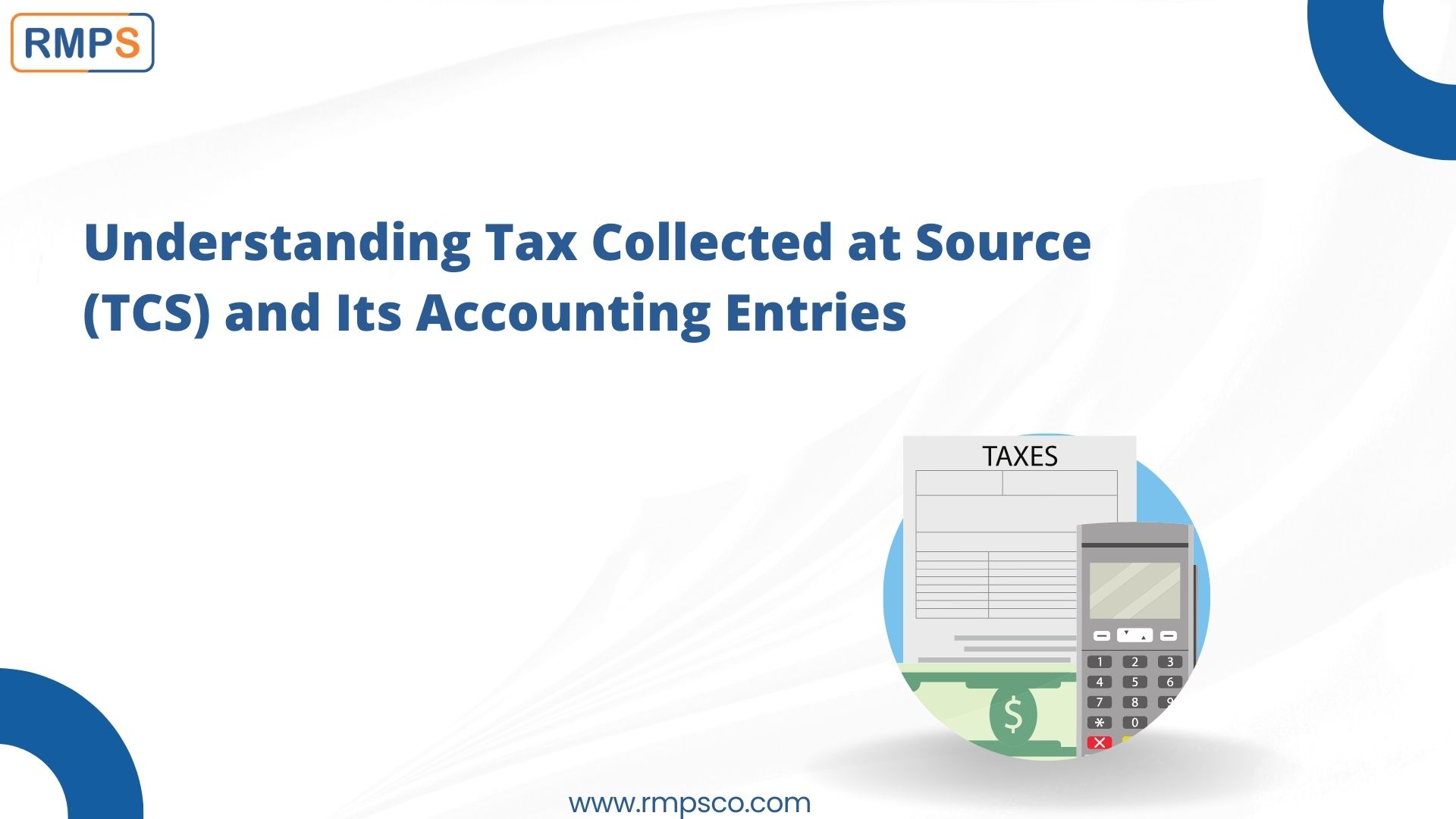
Introduction
Tax Collected at Source (TCS) is a provision under the Income Tax Act, 1961, where the seller collects tax at the time of sale and deposits it with the government. This system ensures tax compliance, minimizes evasion, and promotes accountability. For businesses, accurate accounting of TCS is essential for both financial management and legal adherence.
What is Tax Collected at Source (TCS)?
TCS is a mechanism where the seller collects a specified percentage of tax from the buyer at the time of sale and remits it to the government. It ensures tax is collected at the source of income generation, simplifying tax compliance for both parties.
Key Points
Applicable Transactions
TCS applies to certain goods and services, including:
- Scrap
- Timber and minerals
- Alcoholic liquor for human consumption
- Foreign remittances under the Liberalized Remittance Scheme (LRS)
Rates
TCS rates vary based on the nature of goods or transactions, as outlined in Section 206C of the Income Tax Act.
TAN Requirement
Sellers collecting TCS must obtain a Tax Deduction and Collection Account Number (TAN).
Depositing TCS
Sellers must deposit the collected TCS with the government by the 7th of the following month.
How TCS Works
For Sellers:
- Add the TCS amount to the invoice.
- Collect the tax along with the sale price and deposit it with the government.
For Buyers:
- Pay the TCS as part of the transaction.
- Claim the TCS as a tax credit when filing their income tax return.
TCS Rates for FY 2024-2025 (AY 2025-2026)
| Section | Nature of Transaction | TCS Rate | Threshold |
|---|---|---|---|
| 206C(1) | Alcoholic liquor for human consumption | 1% | No threshold |
| 206C(1) | Tendu leaves | 5% | No threshold |
| 206C(1) | Timber obtained under forest lease | 2.5% | No threshold |
| 206C(1) | Minerals (coal, lignite, iron ore) | 1% | No threshold |
| 206C(1F) | Sale of motor vehicles exceeding ₹10 lakhs | 1% | Above ₹10 lakhs |
| 206C(1G) | Foreign remittance under LRS | 5% up to ₹7 lakhs; 20% beyond ₹7 lakhs | No threshold |
Importance of Proper TCS Accounting
- Compliance: Ensures adherence to tax laws and avoids penalties.
- Transparency: Maintains clear records for audits and reconciliations.
- Tax Credit: Buyers can claim the TCS credit to reduce their tax liability.
Accounting Entries for TCS
| Scenario | Debit | Credit | Amount |
|---|---|---|---|
| At the Time of Sale (Seller) | Buyer’s Account | Sales Account | [Sale Value] |
| TCS Payable Account | [TCS Amount] | ||
| At the Time of TCS Deposit | TCS Payable Account | Bank Account | [TCS Amount] |
| At the Time of Purchase (Buyer) | Purchase Account | Supplier Account | [Total Amount, incl. TCS] |
| TCS Receivable Account | [TCS Amount] | ||
| At the Time of Supplier Payment | Supplier Account | Bank Account | [Total Amount] |
| Claiming TCS Credit (Buyer) | Income Tax Payable Account | TCS Receivable Account | [TCS Amount] |
Issuing TCS Certificate
The seller must issue a TCS certificate (Form 27D) to the buyer, enabling them to claim credit when filing their income tax return.
Conclusion
Accurate accounting and timely compliance with TCS regulations are crucial for businesses. Proper handling of TCS ensures smooth tax management, avoids penalties, and supports efficient financial planning. Whether you are a seller collecting TCS or a buyer claiming it, diligent record-keeping is essential for streamlined tax processes.
LinkedIn Link : RMPS Profile
This article is only a knowledge-sharing initiative and is based on the Relevant Provisions as applicable and as per the information existing at the time of the preparation. In no event, RMPS & Co. or the Author or any other persons be liable for any direct and indirect result from this Article or any inadvertent omission of the provisions, update, etc if any.
Published on: December 5, 2024
